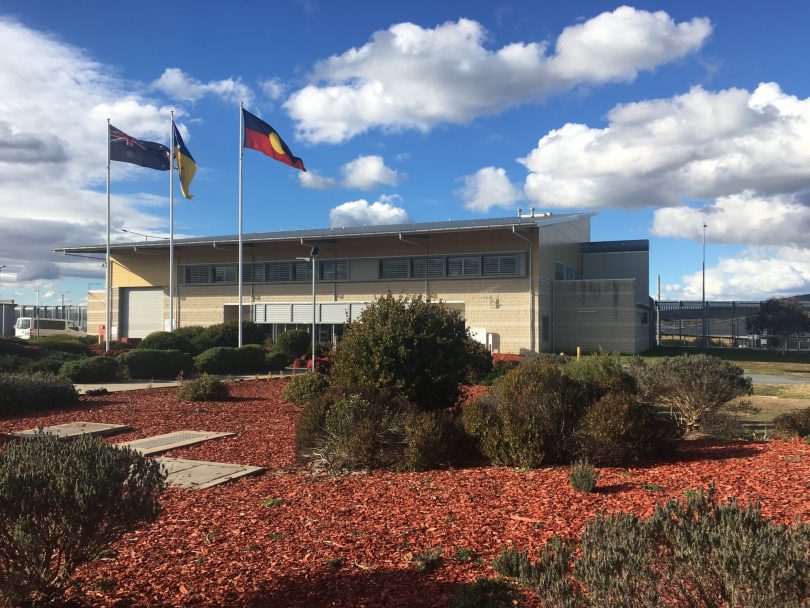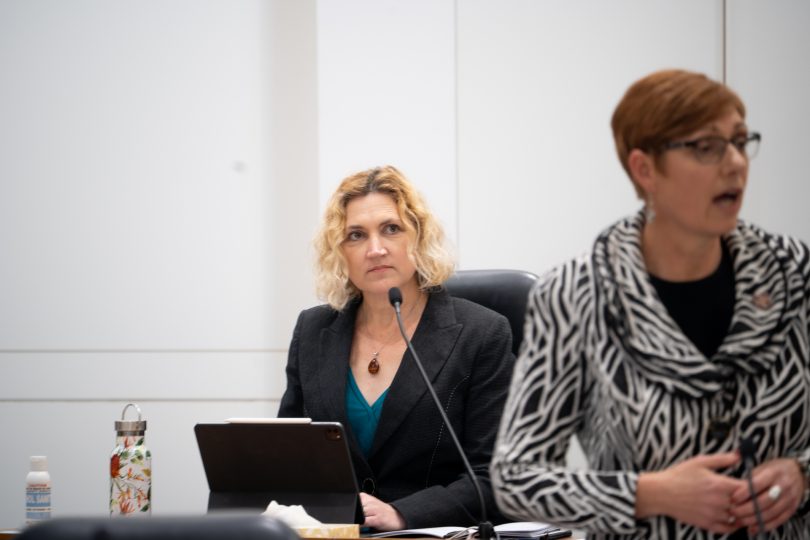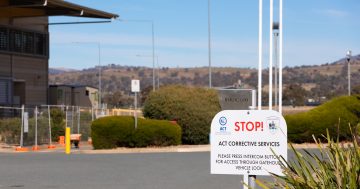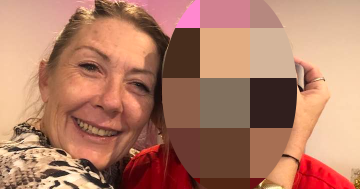
The ACT Office of the Inspector of Correctional Services has called for immediate action at the prison following the death of an inmate by suicide last year. Photo: File.
CONTENT WARNING: This article discusses suicide.
The Territory’s Inspector of Correctional Services has raised serious concerns and urged immediate action following the death of a detainee in custody last year.
The ICS’s review into the incident has made recommendations relating to physical safety in sections of the prison, the provision of equipment to staff and procedures.
On 1 February last year, an inmate committed suicide 27 hours after being admitted into custody at the Alexander Maconochie Centre.
At the time, the inmate was being held in the management unit which was being used as a COVID-19 isolation facility.
The recently released critical incident review found a flaw in the design of the rear cell doors in the management unit. These have been known since 2015.
For unknown reasons, these flaws had not been rectified, but the ICS recommended they be addressed immediately.
ICS also had serious concerns about the procedures followed by prison staff – specifically around detainee observations.
Despite the fact this detainee was assessed, he was found not to require any special observations beyond the usual hourly in-person checks.
The ICS also found there were several “unacceptable” gaps in important details on the man’s admission form. However, these did not relate to his mental health.
The man did say his mood had been depressed and that he had been sleeping for only two hours every night for the last six weeks.
Other reports indicated he had a history of substance abuse, including alcohol. He said he had last ingested cocaine the day before his admission, which the inspector noted could have meant he was experiencing cocaine withdrawal while in the unit.
Upon arrival at 5 pm on 31 January in the basic management unit, which has no exercise areas, the detainee had no further contact with staff that evening.
It seemed to the ICS that between then and his death, the detainee was not provided with any phone calls despite requesting them.
Some detainees have since raised concerns about using the management unit as a COVID-19 isolation unit upon induction. The ICS called on ACT Corrective Services to develop guidance for its operations.
On the day of his death, no review was conducted at 5 pm as it should have been. It was also found the detainee had covered the CCTV cameras in the unit at about 5:20 pm, but no effort was made to uncover them.
The ICS found it was not common practice to require the cameras in the unit to be uncovered.
A 6 pm, observation was conducted only three minutes late. The detainee was found unconscious at 7 pm. At 7:43 pm, despite the efforts of paramedics, he was pronounced dead.
The quick actions of the “highly skilled and professional” staff who found the man was praised by the ICS; however, the ICS noted an additional piece of equipment called a Hoffman knife, a rescue knife used to cut fabrics, should have been on hand. In 2012, a decision was made to remove these from various locations around the AMC without ensuring access to alternative means for staff to access them. The ICS said this was both “deeply concerning” and could potentially put the lives of detainees at risk.
Since the death, some detainees have since raised concerns about feeling unnerved and that they could not easily access mental health or counselling support.
The review called for corrective services to consider whether an overarching suicide prevention framework may be needed.

Minister for Mental Health Emma Davidson (left) announced there would be changes to mental health care at the prison. Photo: Region.
Minister for Mental Health Emma Davidson has since announced a swathe of changes that she said would improve mental health care at the AMC.
This followed a separate Auditor-General’s report into mental health care for detainees.
There will also be a new suicide assessment tool for custodial settings to better screen people at risk of suicide or self-harm. A Justice Health Strategy will also be rolled out by the end of 2022 to improve health services across the justice system.
Ms Davidson said that mental health care must be equitable and fair across Canberra, including for people involved in custodial settings.
“Currently in the AMC, screening processes require the individual to provide information about their medical history and needs which can impact the type of care they receive,” she said.
It’s hoped a new Digital Health Record will be able to alleviate this.
If this story has raised concerns for you, contact Lifeline on 13 11 14. If someone is in immediate danger, call 000. Information and support for anxiety, depression and suicide prevention are available through Beyond Blue.




















